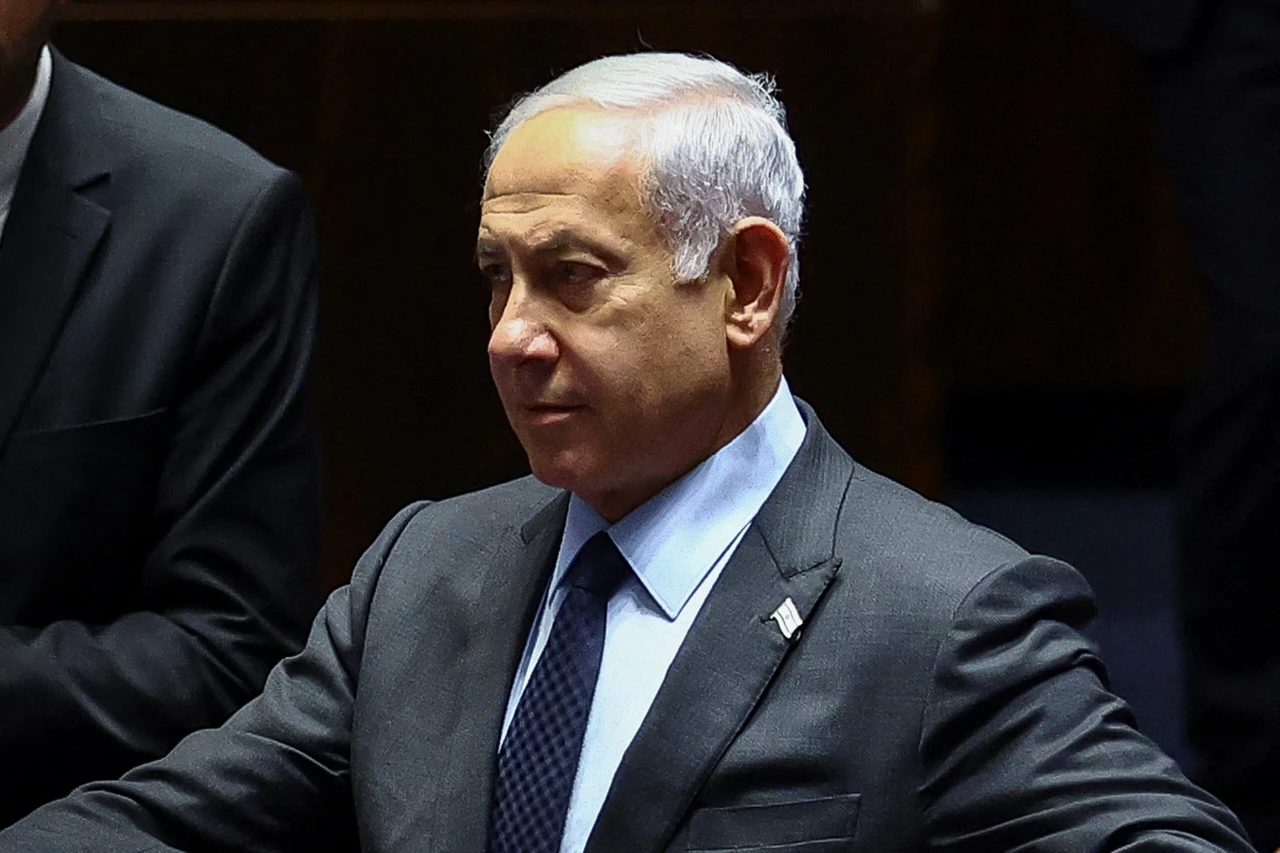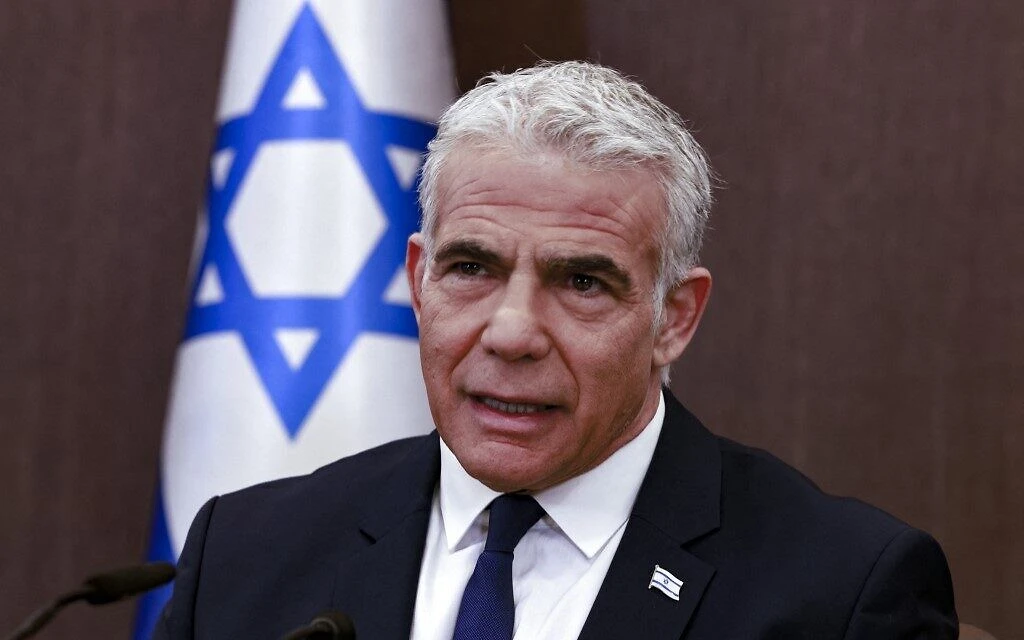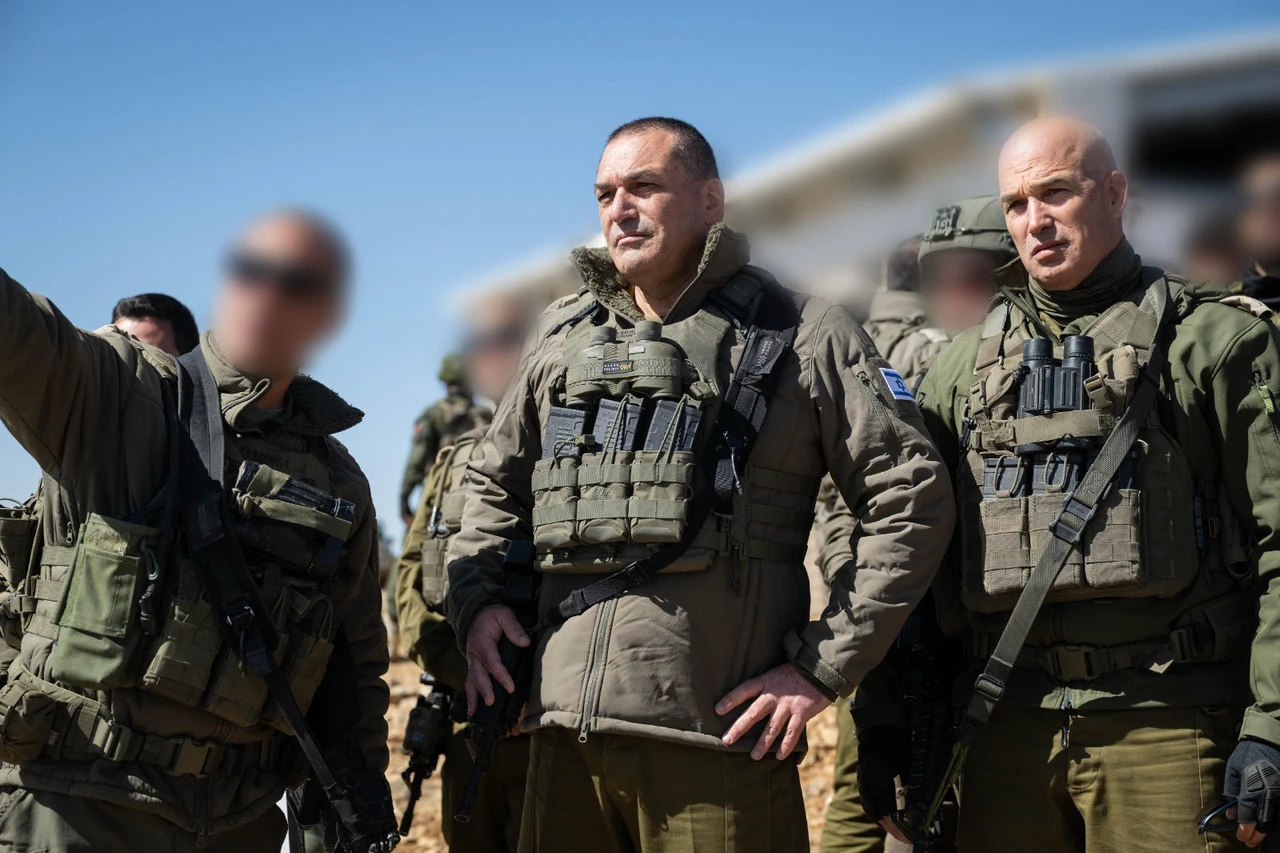Netanyahu hints responsibility for recent high-profile assassinations
 Israeli Prime Minister Benjamin Netanyahu attends a meeting at the Knesset, Israel's parliament, amid demonstrations after he dismissed the defence minister as his nationalist coalition government presses on with its judicial overhaul, in Jerusalem, March 27, 2023. (Reuters Photo)
Israeli Prime Minister Benjamin Netanyahu attends a meeting at the Knesset, Israel's parliament, amid demonstrations after he dismissed the defence minister as his nationalist coalition government presses on with its judicial overhaul, in Jerusalem, March 27, 2023. (Reuters Photo)
Israeli Prime Minister Benjamin Netanyahu announced Wednesday that Tel Aviv is ready for any scenario following the assassination of Hezbollah leader Fouad Shukr. He reaffirmed that the ongoing war on Gaza will continue unabated.
Targeting the “Iranian axis of evil”
In a recorded message aired by local media, Netanyahu stated, “From the beginning of the war, I made it clear that we are fighting against the Iranian axis of evil.” He identified Hamas, the Houthis, and Hezbollah as the 3 main components of this axis.
Series of high-profile assassinations
Netanyahu hinted at responsibility for recent high-profile assassinations, including Hamas’ political bureau chief Ismail Haniyeh in Iran. “In the past few days, we have dealt a crushing blow to each of them,” he stated, referencing targeted strikes on key figures such as Hamas Chief of Staff Mohammed Deif, the Houthis, and most recently, Hezbollah’s Chief of Staff Fouad Shukr.
Hezbollah’s denial
Netanyahu alleged that Shukr was responsible for a rocket attack on the Druze town of Majdal Shams in the Israeli-occupied Syrian Golan Heights, which resulted in 12 fatalities. Hezbollah has denied involvement in the attack. Despite the denial, Netanyahu warned of challenging days ahead, with threats emerging from multiple fronts.
Refusing to yield to pressure
Facing mounting pressure to halt military operations, Netanyahu remained resolute, stating, “I have not succumbed to those voices and will not.” He justified the continued assault by highlighting the strategic gains made, including the destruction of terrorist infrastructure and control over the Philadelphia Corridor.
Humanitarian crisis
Israel’s military actions have drawn international condemnation, especially after the assassination of Shukr and the airstrike that killed Haniyeh in Tehran. Despite a UN Security Council resolution demanding an immediate cease-fire, Israel continues its offensive on Gaza.
The conflict, which began on October 7, has resulted in the deaths of over 39,445 Palestinians, with the majority being women and children. The humanitarian crisis in Gaza is further exacerbated by a severe blockade, leaving the region in ruins and its population in dire need of basic necessities.
Legal concerns
Israel’s actions are under scrutiny at the International Court of Justice, which has accused Tel Aviv of genocide and ordered an immediate halt to military operations in Rafah. This city, a refuge for over 1 million Palestinians, was invaded by Israeli forces in May, leading to widespread devastation.



